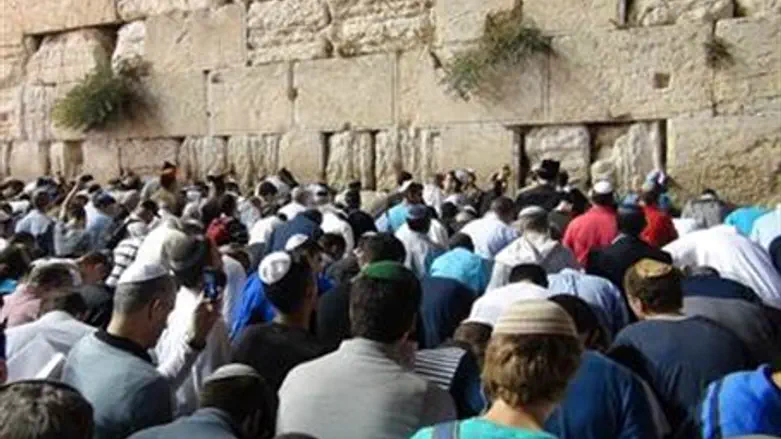
As Yom Kippur - the holiest day of the Jewish calendar - approaches, Jewish worshippers have continued to flock to the Kotel (Western Wall) in Jerusalem, to take part in special penitential prayers known as "selichot."
Yom Kippur translates as "The Day of Atonement," and is a 25-hour fast during which Jews pray for forgiveness for sins they have committed in the past year.
Most will have been reciting selichot for at least a weak and a half already - Ashkenazic Jews begin reciting selichot since the start of the week of Rosh Hashana (Jewish New Year), which took place on Wednesday and Thursday last week; whilst Sephardic Jews began from the start of the previous Hebrew month of Elul. However, the selichot of the Ten Days of Repentance are considered especially important, as the period is considered to be a time of "heavenly mercy."
Selichot are traditionally recited either in the early hours of the morning - prior to the daily shacharit morning prayers - or after midnight, as a show of dedication and commitment to the "Ten Days of Repentance" between Rosh Hashana and Yom Kippur.
This year, Yom Kippur will coincide with Shabbat (the Jewish sabbath) - beginning Friday evening and ending Saturday night (Hebrew calendar days begin the previous evening).
See below for video footage and a photo essay of last night's selichot prayers at the Kotel.